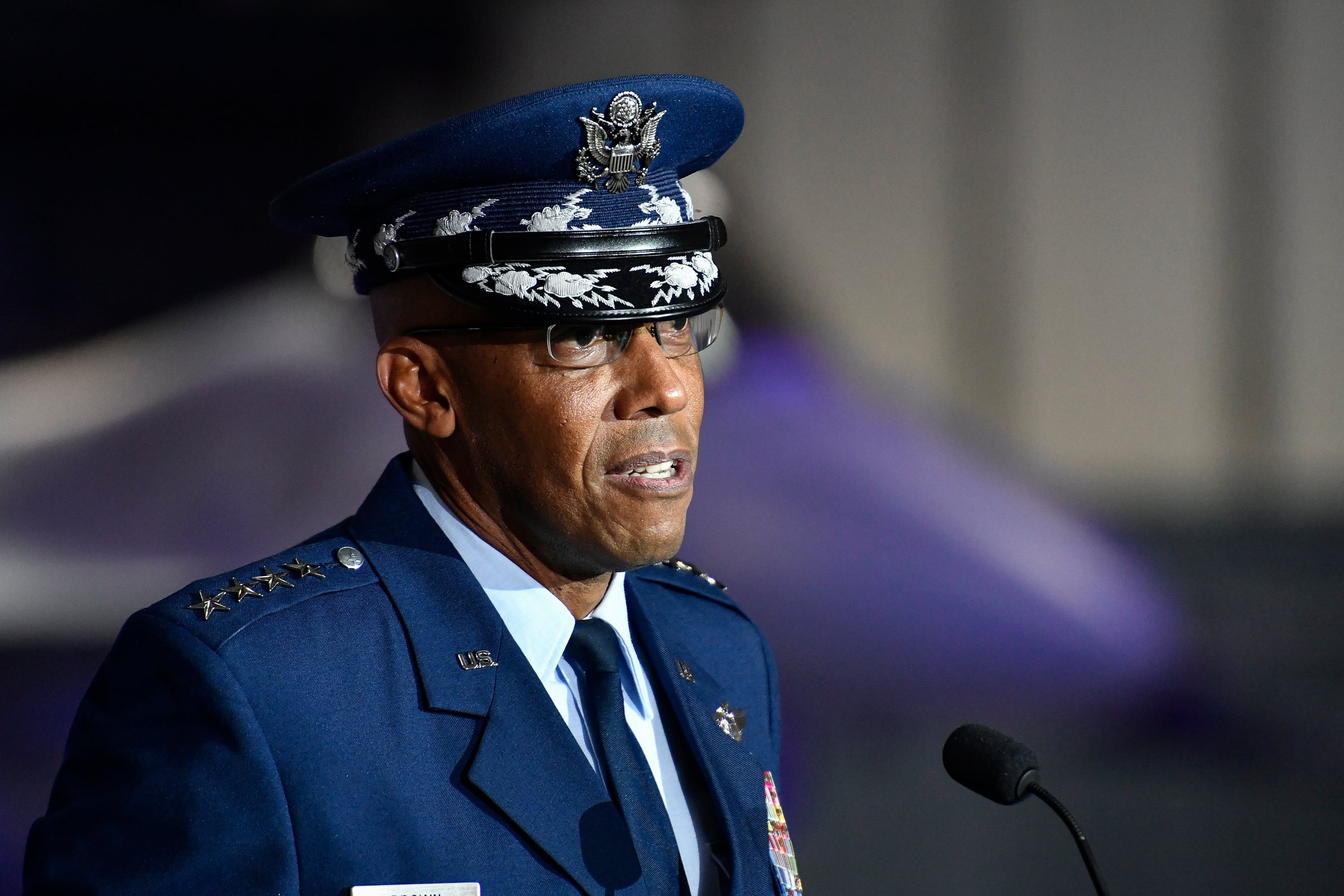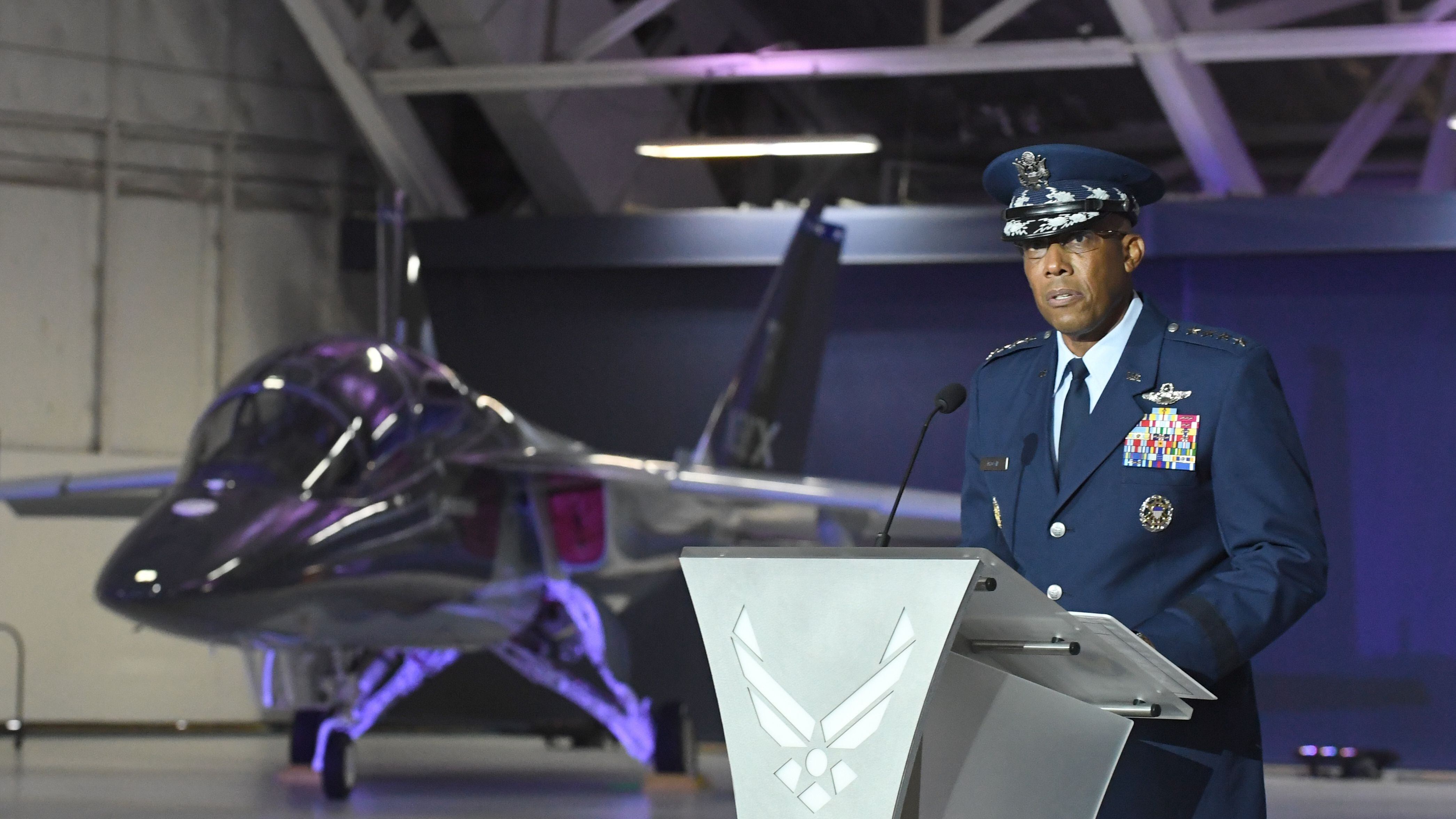Less than a month into his tenure as the Air Force’s new chief of staff, Gen. Charles “CQ” Brown put his commanders on notice that they will have to change quickly to prepare for the next war — or risk losing to an adversary such as China or Russia.
The details of Brown’s call to “accelerate change or lose” will begin taking form at the Air Force’s fall meeting of its most senior leaders, called Corona.
In a roundtable discussion with reporters at the Air Force Association’s virtual Air, Space, Cyber conference, Brown called the upcoming meeting with the leaders of major commands “the first step in the journey.” The fall Corona meeting typically happens in early November at the Air Force Academy in Colorado Springs.
“If we don’t change, if we fail to adapt, we risk losing,” Brown asaid in his address to the AFA conference on Monday. “We risk losing in a great power competition, risk losing in a high-end fight, risk losing quality airmen, losing budget dollars, our credibility, and aspects of our national security.”ting enough to the Air Force’s mission and into underresourced and emerging needs.
“If we don’t change, if we fail to adapt, we risk losing,” Brown aid in his address to the AFA conference on Monday. “We risk losing in a great power competition, risk losing in a high-end fight, risk losing quality airmen, losing budget dollars, our credibility, and aspects of our national security.”
Click here for the latest news from this year’s Air Force Association conference.
But for the most part, exactly what that will mean for major commands, programs and airmen remains to be seen.

In his address Monday, Brown outlined a series of action orders he’s sending regarding airmen, bureaucracy, competition and design implementation.
Brown said airmen are the service’s most valuable resource, and that his first trips were to Joint Base San Antonio-Lackland in Texas, to see how airmen are made in basic military training, and to Air University in Alabama. The Air Force has already taken important steps to improve the lives of airmen, he said, such as by eliminating below-the-zone promotions for officers and promotion testing for senior noncommissioned officers, raising high year of tenure and accelerating the civilian hiring process.
Next, Brown said, the Air Force needs to do more to build leaders and establish a culture where leaders feel comfortable delegating decision-making authorities down to the lowest competent level.
RELATED

But to empower airmen, Brown said, the Air Force needs to address its bureaucratic roadblocks. This means increasing communication and collaboration across the staff, and making decisions with the entire Air Force in mind, not just siloed parts of the service.
On Tuesday, Brown said MAJCOM staffs now have his action orders. When the leaders gather at Corona later this year, Brown said, he wants to see more detail from them on a plan to make those orders a reality, and what the first steps will be.
But he stressed these plans won’t be set in stone.
“We’ve got to be able to adapt as the facts and assumptions change, as the threat changes, as the environment changes,” Brown said. “I want to lay out the first steps, and that’s what the discussion will be at Corona in just a few weeks.”
Brown also said it’s too soon to say which programs might be downsized or eliminated. He wants Air Force leaders to make sure they’re using their resources in the most effective way to get the service the capabilities it needs.
“We don’t want to have a bunch of programs that are kind of half-funded,” Brown said. “And so we’ve got to take a hard look at ourselves and figure out how best to bring all that together, so we have capability. I’m less about the individual platforms, and more about the capability.”
Gen. Mark Kelly, the new head of Air Combat Command, said Monday that finding spots that are currently overmanned, where airmen could be diverted elsewhere, is very tough.
Part of Brown’s call to change includes a drive for “ruthless prioritization,” Kelly said.
That means “we’re actually going to have to stop doing something and push that manpower up to a higher priority line of effort,” Kelly said. “I don’t have excess manpower anywhere” at the moment, whether in the operations, sustainment or cyber areas.
Kelly said he expects to come out of Corona with some firm orders on how to assess what should be prioritized. He expects those priorities will line up with the National Defense Strategy, which calls for preparing for a so-called “great power” conflict with nations like China or Russia.
Stephen Losey is the air warfare reporter for Defense News. He previously covered leadership and personnel issues at Air Force Times, and the Pentagon, special operations and air warfare at Military.com. He has traveled to the Middle East to cover U.S. Air Force operations.





